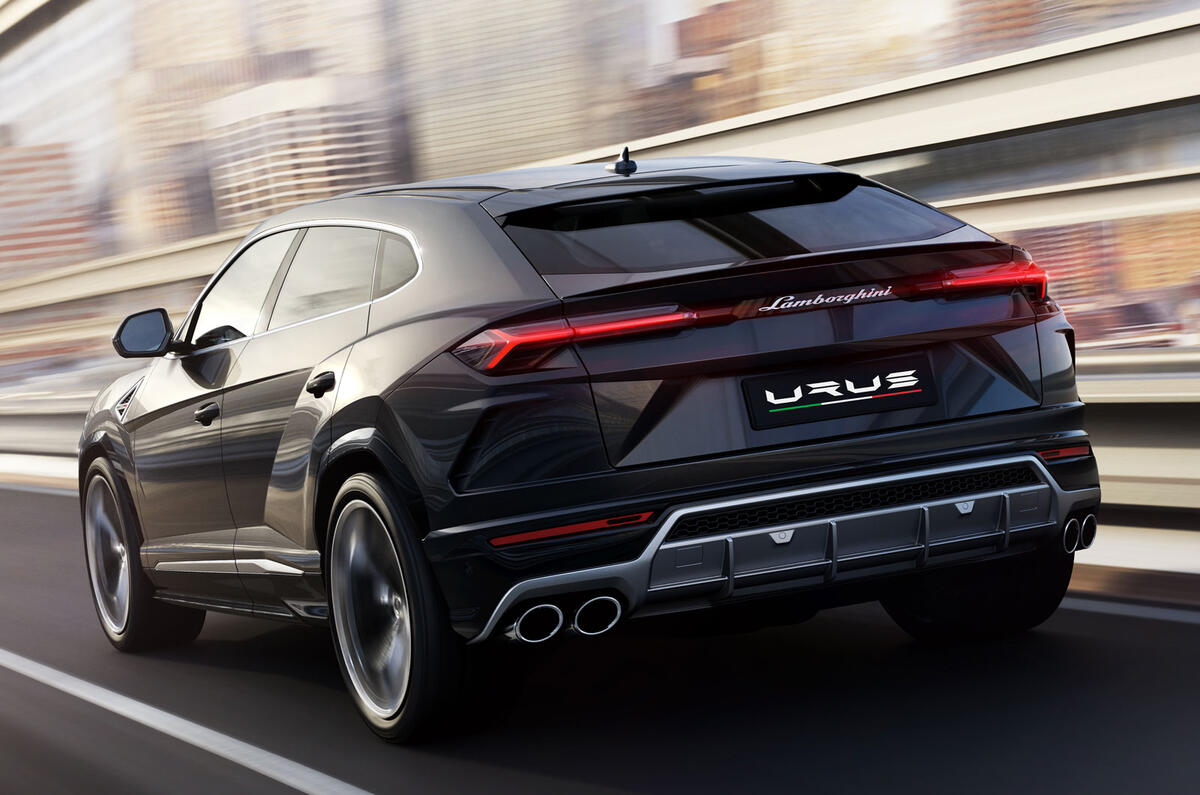We’ve known it’s been coming for years, but it’s still hard to make sense of the concept of a Lamborghini SUV.
After all, a key appeal of any SUV – even a 641bhp ‘super SUV’, such as the newly unveiled Urus – is practicality. Lamborghini is not a firm known for being practical or sensible; it has a long, proud history of not making much sense.
Lamborghini Urus revealed: full details and pictures
This is a company established to make sports cars by someone whose previous manufacturing experience was in tractors; whose founder, Ferruccio Lamborghini, wanted to take on Ferrari but thought motorsport a waste of time and money.
A company that names its cars after bulls with the occasional exception, such as the Countach, which is derived from a regional Italian swear word.
A company with a lucrative sideline in selling engines for powerboat racers. One that developed a military-grade off-roader, failed to sell it to the military and then decided to sell the beast to the public as the lumbering, gas-guzzling LM002.
Autocar drives a Lamborghini LM002
And this is a company capable of blending high-tech engineering and theatrical Italian flair to create supercars capable of shattering lap records everywhere they go – including, with the Lamborghini Huracán Performante, Autocar’s road test handling circuit.
Lamborghini is the automotive equivalent of a big-haired 1970s heavy metal band: it is brilliant precisely because it teeters on the edge of ostentatious self-parody.
And now it’s built what is, underneath that sculpted body and 641bhp engine, a practical, high-riding SUV. Heck, Lamborghini’s press materials even make much of sensible features such as a 616-litre boot and Isofix points.
Doesn’t make sense, does it? Except it absolutely does.
Comment: will the Urus handle like a true Lamborghini?
Making and selling high-yield, low-volume supercars is an inherently unstable business – one hugely vulnerable to market vagaries. Look at how many times Lamborghini has changed ownership in its tumultuous history.
Things have stabilised since the Volkswagen Group bought it in 1999, but while sales have steadily increased, reaching a record 3457 cars in 2016, the journey hasn’t always been smooth. The global financial crisis of 2008 hit Lamborghini hard, with sales plummeting from 2430 that year to just 1302 in 2010. In times of financial hardship, luxury purchases are the first to go.
But while supercars are indeed luxury purchases, SUVs – even luxury ones – are not. Supercars are not things you drive every day (well, with the odd exception). In contrast, features such as the big boot and Isofix points make the Urus a practical daily driver for those who can afford one. I suspect every Lamborghini owner currently has at least one other car for day-to-day use; why shouldn’t that be a second, more practical Lamborghini?








Join the debate
Add your comment
Long live this new VW panzer
Long live this new VW panzer !
It just lacks a Diesel one for the CO2 emissions.
Eh?
Gone from a low slung mid engined thing to a 5 foot high vehicle, and whenever were Lambo's any good. The Mura etc were terrible and had several design issues like handling that changed as per the fuel load and the countach was also awful so I don't know what this revision of history is. It's just a (latin) based platform that a boring company like VW can at let it's "same again" design team have a reason to go to into work and then they charge you according to the "clones" position in the "local market place". Not content with poisoning us deliberately VAG then continue to make behemoths like this.
Eh....2
What are you actually commenting on...?, Lamborghini are only doing what the others are doing joining in on the premium high performance people mover!, Ferrari (oh yes they will!) will do one too!, they’d be mad not to. Lamborghini have moved on from the kit Car like Coutach and when acquired by VW things did improve, the Huaracan for instance is a glorious thing to drive, not to big not to small,makes a fabulous noise, the ceramic brakes are just awesome, no, Lamborghini are cool car makers, yo7 should read more about them.
And why not...?!
Nearly every Carmaker has a premium SUV now, so, why not Lamborghini?, it’s another revenue stream which could fund new projects.